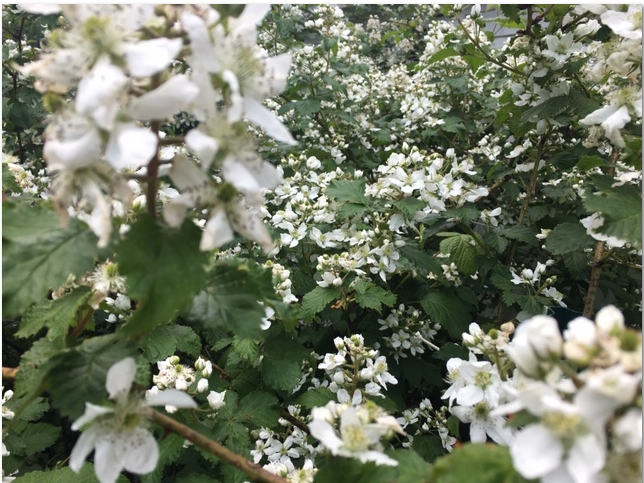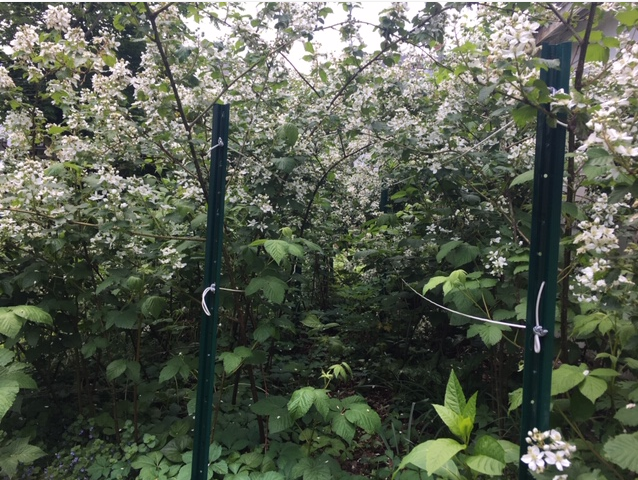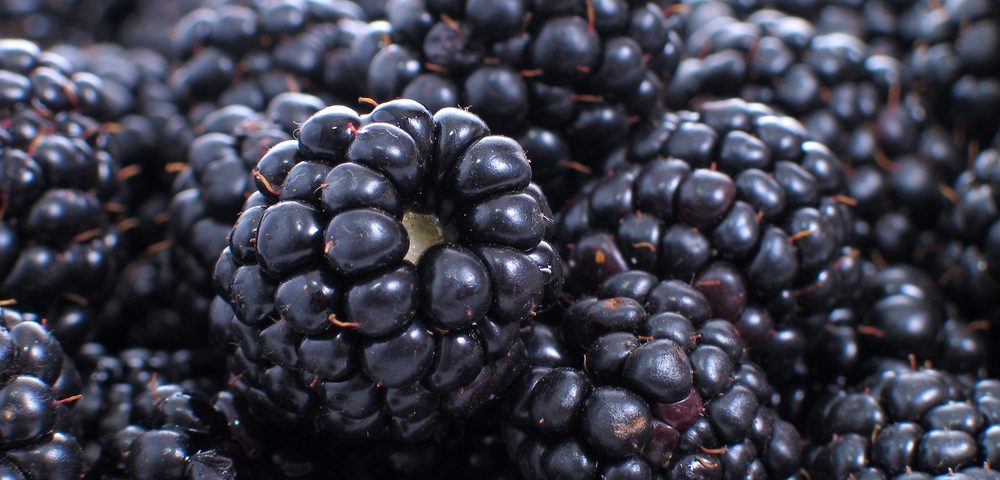About a year ago, I wrote about the blackberry patch in my yard. It’s a wild patch, probably started by a squirrel dropping a berry, and it’s full of thorns. But every spring, I see a daffodil pop up through those thorns.
Daffodils are a symbol of hope for many cancer patients. They come up in the spring, sometimes through the snow, and remind us that the harsh winter is leaving us and the warm spring is coming. To see a daffodil come up through thorns is even more of a symbol of hope for me. The blackberry patch taught me a lesson: Even in the darkest times, amid the thorns of cancer, something good can happen.

As I write this, the blackberry patch is in full bloom – beautiful white flowers where, in a few weeks, sweet blackberries will begin to grow.

The patch is still teaching me lessons.
My dad died in the fall. He’d been diagnosed with advanced lung cancer in the summer. My brother and I spent many weekends going through his house. We gave a lot of things away to people who could use them (something Dad would have really wanted). We threw some things away. And we found some “treasures” – valuable only to us — that gave us some happy memories and reasons to trade stories over lunches full of laughter.
When spring came around, my mind was still in clean-out mode. My wife and I have spent our weekends in the yard. We started with that blackberry patch.
Blackberries grow on canes — long, woody stems. The canes grow tall for one year. The next year they flower and grow fruit. The third year, they die off.
Our blackberry patch wasn’t planned; it just grew wherever that squirrel dropped that berry. When my wife and I looked at the patch, we saw more old, dead canes than young, living ones that were ready to flower and fruit.
So, we covered our heads and arms, and we crawled in, cutting away dead canes. We got some stakes and some string, and carved a path so we can get to the fruit when it comes.

Like that daffodil in the thorns, our cleared-out patch offers some lessons, too.
The thorns of cancer never go away. For 11 years, I’ve lived with follicular lymphoma. It’s a slow-growing but incurable cancer. There’s a lot of emotional baggage that comes with that. A visit to the doctor can bring back bad memories. An unexplained bump or bruise can cause panic. An offhand comment from someone can ruin a day.
A problem from the past can hold us back, even if it’s not really a problem anymore.
So, maybe it’s time to clear out the dead canes, to move past some of the fears that don’t matter anymore, to decide what matters and what doesn’t. Allow light and air to come in. It’s healthier.
Even with all of the clearing out, even with the path cut through, the thorns are still there. The cancer — and everything that comes with it — isn’t going away.
Cutting and clearing the emotional baggage helps us avoid the thorns and access the fruit — another symbol, like the early spring daffodil, that life will always find a way, even among thorns.
***
Note: Lymphoma News Today is strictly a news and information website about the disease. It does not provide medical advice, diagnosis, or treatment. This content is not intended to be a substitute for professional medical advice, diagnosis, or treatment. Always seek the advice of your physician or other qualified health provider with any questions you may have regarding a medical condition. Never disregard professional medical advice or delay in seeking it because of something you have read on this website. The opinions expressed in this column are not those of Lymphoma News Today or its parent company, BioNews Services, and are intended to spark discussion about issues pertaining to lymphoma.


